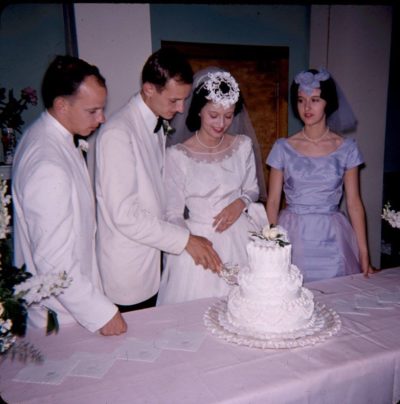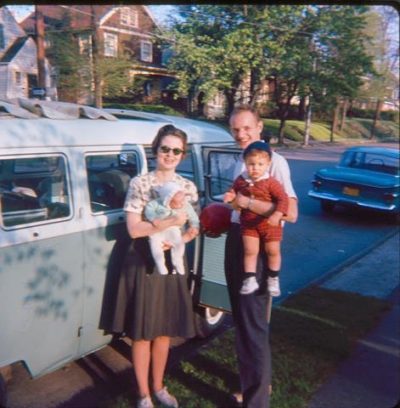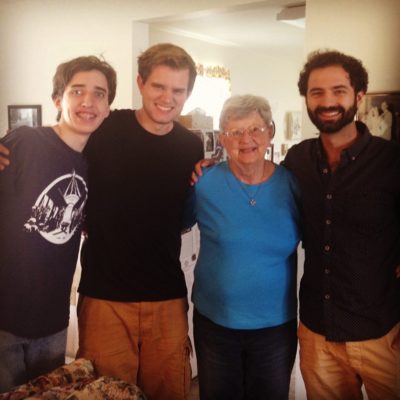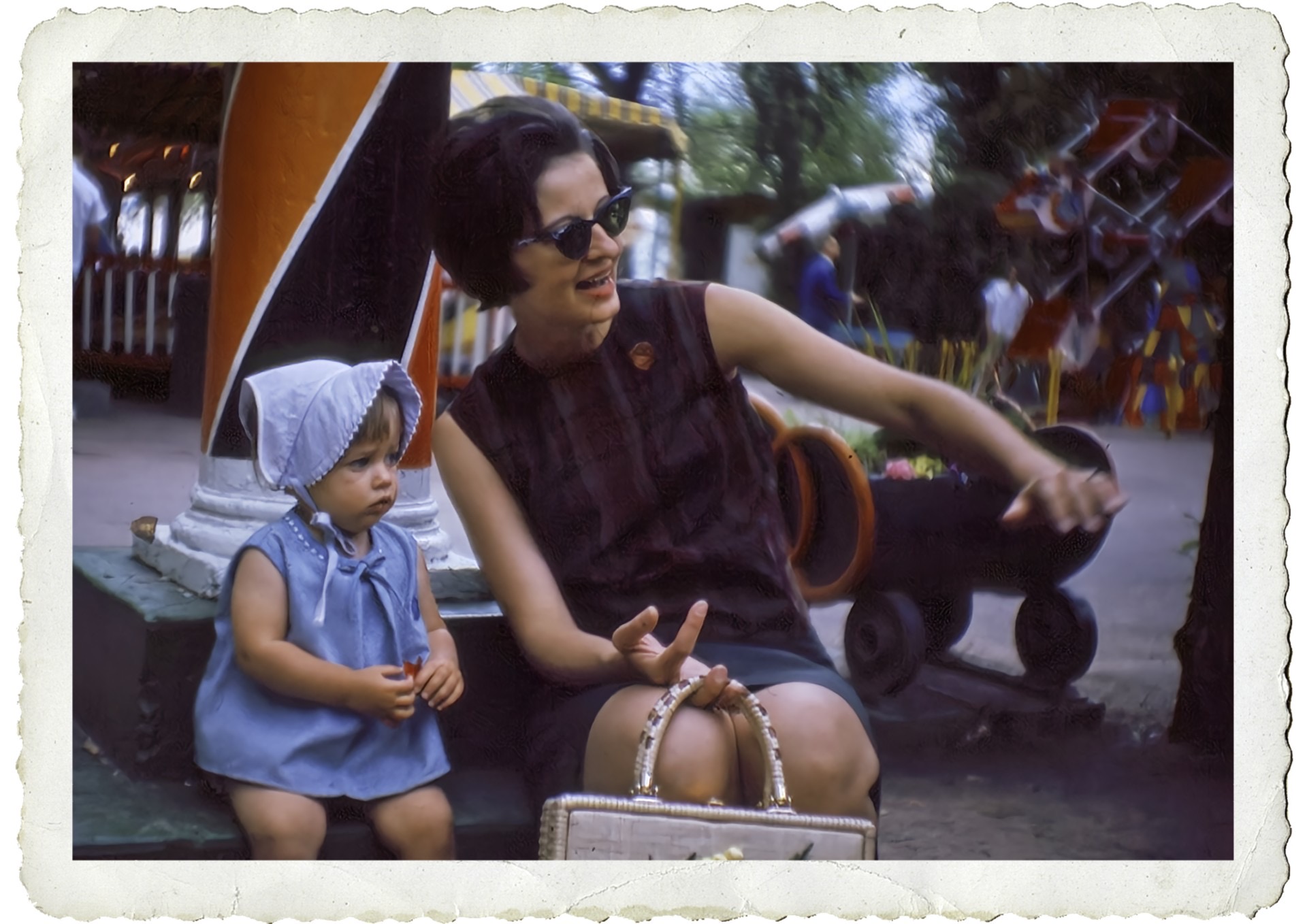Brian O’Connor turned to his wife. “Katherine. I just learned that there are still open seats on the plane for today’s game with East Carolina. I’d like to go. Can you join me?”
It was Saturday, November 14, 1970. As Dean of Admissions at Marshall University in Huntington, West Virginia, Brian attended most of Marshall’s games. The football team was made up of young men from across the state and they had great fan support. Besides 37 players on the plane that day, there were eight members of the coaching staff, and 25 others on the chartered flight—university staff members and community football boosters.
Katherine stayed home with 6-year-old David and 4-year-old Ruth Ann. But she made arrangements for a babysitter to come that evening so that she could pick Brian up at the airport, 15 minutes away.

Katherine and Brian’s Wedding Day
The couple had met in 1960 when they were students at Wagner College. Brian went on to earn a PhD in college administration and Katherine became a nurse. They’d been in Huntington for two years and enjoyed the “community feel” of the town.
Katherine waited for Brian’s call. The babysitter had arrived and the minutes kept ticking away, but no call came.
On the TV screen pictures of the chaos of a plane crash began to appear. Along the bottom of the screen ran the words “No Survivors…No Survivors…No Survivors.” Katherine watched in shock. Was this the Marshall plane? But if it was she was certain that there was one survivor—her husband.
Friends came to wait with Katherine—some keeping the children busy away from the TV and others sitting with her or camping out on her living room floor.

O’Connor Family, 1965
It wasn’t until she went to bed that she accepted the terrible truth that everyone onboard had perished, including her husband. He would not be coming home again. Tears came, accompanied by moans from deep inside her. How would she get through this without her beloved?
Brian was 32-years-old when he died; Katherine was 30.
Elaine, her sister, comforted her with the words of the song, “Be Still My Soul.” Although she’d never heard the song before, the words soothed her.
Be still, my soul: the Lord is on thy side.
Bear patiently the cross of grief or pain.
Leave to thy God to order and provide;
In every change, He faithful will remain.
Be still, my soul: thy best, thy heav’nly Friend
Through thorny ways leads to a joyful end.
She had no one with whom to walk through the grief process. There were no support groups in 1970 nor any books she was aware of to help her through the long nights and stressful days. Depression overtook Katherine. It was part of the grief experience, but she didn’t know it at the time.
Katherine’s faith, to which she had clung throughout her life, was inadequate for the depth of her pain. She began to seek the Lord for answers.
Then a friend invited her to church. It was there that she heard about the transforming power of God’s love and grace, available to all who call out to him. That day the pastor led her to the Lord and she accepted God’s gift of salvation for herself. Katherine began to walk with him in a new way, and it changed her life.
She and the children moved to New York to be near her family in 1972. For the first time in her life she got immersed in God’s Word through attending Bible studies. Eventually she became a speaker for Christian Women’s Club, sharing her story at luncheons around the region.
Katherine went back to work, providing nursing care for people who were dying at home. She appreciated the benefits of the compassionate care that patients received but she longed to work as a member of a team rather than alone.
It was about this time that she discovered Hospice, which started in London in 1967 and arrived in the U.S.in 1974. She went back to school for her Masters degree and became a Clinical Nurse Specialist. With her compassion for the grieving, this training equipped her to work with the dying and their family members. Katherine ministered through Hospice for 20 years.
Thirteen years after the crash Katherine met George Beiter, a widower with six children. When they married they merged their families—his six kids and her two. She is Grandma to six O’Connor grandkids and to six Beiter grands.

Katherine with three of her grandsons
George passed away in 1997. Besides her work in Hospice, Katherine remained busy over the years as a college instructor, Bible study leader, and a sought-after public speaker. She has been an advocate for the elderly in prevention of elder abuse and neglect.
Her book, Comfort in Dying: Reflections of a Hospice Nurse, is available through Amazon. It is filled with tender stories of the hurting hearts she served through Hospice, both those preparing for death and their family members.
Today Katherine lives in a 55+ community (which she loves). Besides blogging about Christianity through the centuries, she has started a group called “Field of Grace.” It is a spiritual discussion group for women in her community. They meet every other week. She presents a short devotional, and the women share what’s going on in their lives.
Katherine O’Connor Beiter has poured her life into bringing comfort to those who suffer because she has experienced the compassion and comfort of God for herself. The apostle Paul describes her beautifully in 2 Corinthians 1:3-7 when he talks about “the God of all comfort, who comforts us in all our troubles, so that we can comfort those in any trouble with the comfort we ourselves receive from God” (3b-4).
May this great God comfort you in your pain and allow you to comfort others through the comfort you receive.
Ginger
When we lived in New York Tom and I were blessed to meet Katherine and George. We visited them at their farm to interview them for our magazine, Family Scrapbook. You can see the article that appeared in the July/August 1994 issue here.
You may want to watch the movie, We Are Marshall, starring Matthew McConaughey. It tells the story of the plane crash and the healing process of the university and community. We watched it recently and thought it was a great movie.





Thank you for telling the stories of Katherine and George. You write well! I appreciate the care and creativity you give to this website. I also like the NY focus!
Thank you so much, Mary Ann! It’s nice to have New York in common, isn’t it!
Ginger
God can do anything. My husband was Nathaniel (Nate) Ruffin No. 25. He missed the flight due to an injury. Thank you for sharing. Sharon Ruffin
Sharon, thank you so much for your comment. We watched “We Are Marshall” a couple of nights before the blog was posted and I remember feeling I got to know Nate a little bit. He was portrayed as a man of integrity and a good leader. The accident must have had a huge impact on his life, and yours as well.
God’s continued strength and grace to you,
Ginger